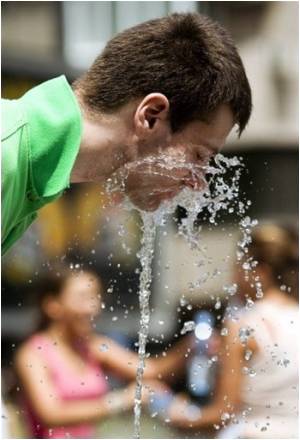McGill researchers have come up with a new and inexpensive way of filtering water using silver nanoparticles.

Now, researchers at McGill University have taken a key step towards making a cheap, portable, paper-based filter coated with silver nanoparticles to be used in these emergency settings.
"Silver has been used to clean water for a very long time. The Greeks and Romans kept their water in silver jugs," said Prof. Derek Gray, from McGill's Department of Chemistry.
But though silver is used to get rid of bacteria in a variety of settings, from bandages to antibacterial socks, no one has used it systematically to clean water before.
Gray's team, which included graduate student Theresa Dankovich, coated thick (0.5mm) hand-sized sheets of an absorbent porous paper with silver nanoparticles and then poured live bacteria through it.
The results were definitive. Even when the paper contains a small quantity of silver (5.9 mg of silver per dry gram of paper), the filter is able to kill nearly all the bacteria and produce water that meets the standards set by the American Environmental Protection Agency (EPA).
Advertisement
The study was recently published in the Journal of Environmental Science and Technology.
Advertisement













